
Affiliated Faculty
Meet our faculty who not only teach courses in LGBTQ+ Studies, but also those who conduct scholarship on LGBTQ+ issues and who are willing to serve as mentors to students.
Faculty Advisory Board for LGBTQ+ Studies
 Marie Draz
Marie Draz
Program Director
Associate Professor of Women's Studies
Ph.D. (Philosophy, DePaul University, 2015)
Professor Draz's research and teaching draws on queer studies, feminist theory, and
contemporary continental philosophy. Her current work engages with transgender studies
and decolonial theory on questions related to time, embodiment, and identity documents.
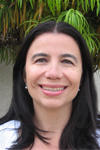 Victoria González-Rivera
Victoria González-Rivera
Professor of Chicana and Chicano Studies
Ph.D. (History, Indiana University, 2002)
Professor González-Rivera is a pioneer in the fields of Nicaraguan women’s and LGBTQ
history. In 2001 she co-edited the book Radical Women in Latin America. Left and Right. Her second book, Before the Revolution. Women’s Rights and Right-Wing Politics in Nicaragua, 1821-1979, was published in 2011. With the support of an American Council of Learned Societies
(ACLS) Collaborative Fellowship, she is co-authoring a new book on the last 500 years of Nicaraguan LGBT history.
 Alvin J. Henry
Alvin J. Henry
Associate Professor and Director of Asian American Studies
Ph.D. (Literature and Social Thought, University of California, Berkeley)
Professor Henry believes in the transformative powers of Ethnic Studies and LGBT+
Studies. He teaches courses that explore gender, sexuality, and the Asian American
experience. He is currently working on two research projects: an ethnography of Asian
American student culture and a critical study of Southeast Asian American queer aesthetics
and community. Henry is the author of Black Queer Flesh: Rejecting Subjectivity in the African American Novel (Minnesota, 2020). Having personally grappled with the challenges of being a first-generation
college student, Henry has developed career programs that help students thrive in
liberal arts majors while landing internships and full-time jobs.
 Priya Kandaswamy
Priya Kandaswamy
Professor of Women’s Studies
Ph.D. (Ethnic Studies, University of California, Berkeley, 2006)
Professor Kandaswamy’s research explores how race, gender, sexuality, and class have
shaped the relationship between the heteronormative family and state power in the
United States. Her work uses insights from queer studies to think about welfare rights,
anti-poverty organizing, domestic workers struggles, and prison abolition in queer
ways and situates economic justice as a central component of queer politics.
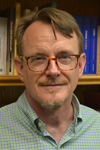 Walter Penrose
Walter Penrose
Professor of History
Ph.D. (History, City University of New York, 2006)
Professor Penrose specializes in the History of Gender and Sexuality in Ancient Greek,
Hellenistic, and South Asian contexts. He is the author of Postcolonial Amazons: Female Masculinity and Courage in Ancient Greek and Sanskrit
Literature (Oxford, 2016). He has also published a number of articles and essays on homoeroticism,
gender, and disability in the premodern period as well as in later receptions of the
ancient world.
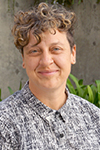 Jess Whatcott
Jess Whatcott
Associate Professor of Women's Studies
Ph.D. (University of California Santa Cruz, 2019)
Professor Whatcott studies the formation of gender, sexuality, disability, and race in United States history. Specifically, they use queer theory and critical disability studies to examine the eugenics policies of the state of California in the late nineteenth and early twentieth century. Professor Whatcott is also a self-identified speculative fiction nerd.
Tenured and Tenure-Track Faculty
 Antwanisha Alameen-Shavers
Antwanisha Alameen-Shavers
Associate Professor of Africana Studies
Ph.D (African American Studies, Temple University, 2012)
Professor Alameen-Shavers’ research centers on the constructional aspects of Black
womanhood and its consequences for African American women’s interactions with society.
More specifically, she is interested in the sexual politics that dictates the ways
in which Black women are treated and view themselves.
 Godfried Asante
Godfried Asante
Associate Professor of Communication, Difference, and Disparities
Ph.D. (Critical Intercultural Communication, University of New Mexico, 2017)
Professor Asante's research focuses on the entanglements of queer of color critique,
postcolonial studies, intersectionality, and transnational Black identity politics
as they emerge in community engagement projects and human rights advocacy work in
West Africa. His research has appeared in journals such as Communication Theory, Journal
of International and Intercultural Communication, and Women's Studies in Communication.
 Pablo Ben
Pablo Ben
Associate Professor
Ph.D. (History, University of Chicago, 2009)
Professor Ben's scholarship focused on working-class men's sexual lives, including
gay men's cultures in Buenos Aires, Argentina, in the late nineteenth and early twentieth
centuries.
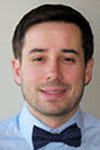 Aaron Blashill
Aaron Blashill
Professor of Psychology
Ph.D. (Psychology, St. Louis University, 2011)
Professor Blashill’s research focuses on the role body image plays in influencing
health behaviors. He is particularly interested in studying HIV medication adherence,
HIV sexual transmission risk behaviors, skin cancer prevention, and anabolic-androgenic
steroid misuse. Another focus is sexual orientation health disparities, and vulnerable
developmental phases, including adolescence and emerging adulthood.
 Michael Borgstrom
Michael Borgstrom
Professor of English; Associate Dean of College of Arts and Letters
Ph.D. (English, UC Davis, 2002)
Professor Borgstrom teaches and writes about American literature, sexuality and gender
studies, African American literature, and critical race theory.
 Jeffrey Brown
Jeffrey Brown
Assistant Professor of Counseling and School Psychology
Ph.D. (Psychology, Tulane University)
Jeff is an assistant professor in the department of counseling and school psychology
where he primarily teaches courses in the school psychology graduate program. His
research interests include investigating the impact of systems of discrimination on
minoritized individuals and communities, particulary people of color and LGBTQ+ youth,
and how identity may act as a protective factor. Before SDSU, Jeff was a fellow at
the Partnership on Artificial Intelligence where he led a study on attrition of minoritized
individuals on AI teams, and was an assistant professor at Minnesota State University,
Mankato where he is a licensed psychologist. Jeff received his Ph.D. in psychology
from Tulane University and his B.A. in psychology from Yale University. He is originally
from Kingston, Jamaica.
 Jerel P. Calzo
Jerel P. Calzo
Professor, Graduate School of Public Health
Ph.D. (Developmental Psychology, University of Michigan, 2010)
Professor Calzo’s research focuses on adolescent health, gender, sexual orientation,
and community-based participatory research (CBPR) approaches. His current research
interests include partnering with school and community-based programs to develop evidence-based
practices to support positive youth development and resilience among LGBTQIA+ youth,
and using survey and mixed method research designs to examine and address gender and
sexual orientation health inequities in the areas of eating disorders and substance
use.
 Todd M. Carson
Todd M. Carson
Counseling Faculty in Counseling & Psychological Services
Psy.D. (Clinical Psychology, Alliant International University, 2013)
Dr. Todd Carson, a licensed psychologist, obtained his doctorate degree in Clinical
Psychology with an emphasis in Integrative and Multicultural Psychology from CSPP-AIU.
His dissertation research focused on the impact of multigenerational trauma on different
cultural groups. In addition to specializing in counseling of Queer students, he is
a SafeZones Ally Program trainer and Coordinating Committee Member, and a routine
presenter and guest lecturer on LGBTQIA+ topics.
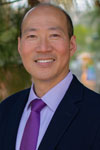 Y. Barry Chung
Y. Barry Chung
Dean of College of Education
Ph.D. (Counseling Psychology, University of Illinois at Urbana-Champaign, 1996)
A native of Hong Kong, Dean Y. Barry Chung received his A.M. and Ph.D. in counseling
psychology from the University of Illinois at Urbana-Champaign, and his B.A. in educational
psychology and counseling from the National Taiwan Normal University. Dr. Chung’s
research interests include career development, multicultural counseling, and sexual
orientation and gender diversity issues. He was appointed to 10 journal editorial
boards internationally, and was Executive Editor of the American Psychological Association
(APA) Division 44 Book Series.
 David Cline
David Cline
Professor of History; Director of the Center for Public and Oral History
Ph.D. (History, University of North Carolina at Chapel Hill, 2010)
Professor Cline specializes in 20th and 21st century U.S. social movements, religion,
oral history, the digital humanities, and public history. He has recently been working
on LGBTQ+ life in the American South. He has also worked on digital and public humanities
projects with the Smithsonian, the Library of Congress, and National Geographic. Professor
Cline is the author of books about reproductive rights struggles and the roles of
religious progressives in the civil rights movement.
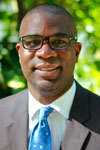 Roddrick Colvin
Roddrick Colvin
Professor of Public Administration; Director of the School of Public Affairs
Ph.D. (Public Administration and Policy, University at Albany, 2002)
Professor Colvin teaches both public administration and criminal justice courses.
His research centers on LGBTQ+ public employment equity, police officers' shared perceptions
and decision-making, and community policing strategies in Latin America. He is the
author of the book, Gay and Lesbian Cops: Diversity and Effective Policing (Lynne
Rienner Publishing, 2012).
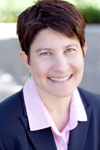 Heather Corliss
Heather Corliss
Professor of Public Health
Ph.D. (Epidemiology, University of California Los Angeles, 2004)
Professor Corliss uses public health and epidemiological research methods (quantitative,
qualitative, and mixed methods) to study health disparities adversely affecting LGBTQ+
populations. She has conducted research on a wide range of health-related experiences
including childhood maltreatment, bullying, family relationships and social support,
substance use, obesity, weight-related behaviors, homelessness, reproductive and sexual
health, and mental health.
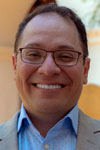 Alberto Esquinca
Alberto Esquinca
Associate Professor of Dual Language and English Learner Education
Ph.D. (Education with a specialization in Language, Literacy and Learning, University
of Southern California, 2006)
Professor Esquinca recently obtained funding from the National Science Foundation
to research the relationship between identity and persistence in college among Latinx
students from an intersectional perspective.
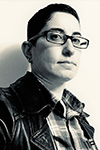 Y Howard
Y Howard
Professor of English and Comparative Literature
Ph.D. (English, University of Southern California, 2010)
Professor Howard is the author of Ugly Differences: Queer Female Sexuality in the Underground (University of Illinois Press, 2018) and the editor of Rated RX: Sheree Rose with and after Bob Flanagan (The Ohio State University Press, 2020). For more info: www.yettahoward.com.
 Keith Horvath
Keith Horvath
Professor of Psychology
Ph.D. (Psychology, University of Wyoming, 2005)
Professor Horvath’s research primarily focuses on developing and testing HIV prevention
and treatment mHealth interventions for sexual and gender minorities. He is involved
in the Adolescent Medicine Trials Network for HIV/AIDS Interventions (ATN) where he
leads studies addressing ART adherence among HIV-positive youth and HIV risk reduction
among HIV-negative transgender and non-binary youth. His current interventions incorporate
social support, theoretically-grounded information, self monitoring, and gamification
components that can be tailored to different groups and outcomes.
 Amira Jarmakani
Amira Jarmakani
Professor of Women’s Studies
Ph.D. (Emory University 2004 in Cultural Studies)
Professor Jarmakani is a feminist scholar of cultural studies specializing in race,
gender, sexuality, ethnicity, and representation in US popular culture. Her areas
of interest include transnational and decolonial feminisms, comparative orientalisms
in the Americas, and representation and the body. She authored An Imperialist Love Story: Desert Romances and the War on Terror (NYU 2015) and Imagining Arab Womanhood: The Cultural Mythology of Veils, Harems, and Belly Dancers
in the U.S. (Palgrave 2008).
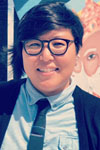 AJ Kim
AJ Kim
Associate Professor of City Planning
Ph.D. (Urban Planning, University of California Los Angeles, 2011)
Professor Kim’s research and teaching focuses on intersections of race, gender, sexuality
and uneven economic development in the built environment. She has partnered with Los
Angeles and Atlanta area municipalities and NGOs on how to plan for and with diverse
communities. She has degrees in Gender and Feminist Studies (B.A), Ethnic Studies
(M.A.) and Urban Planning (UCLA, Ph.D.).
 Minjeong Kim
Minjeong Kim
Professor of Sociology; Director of Center for Asian & Pacific Studies
Ph.D. (Sociology, University at Albany - SUNY, 2008)
Professor Minjeong Kim's research areas include gender, family and international migration,
as well as Asian American studies and the media. She has taught courses primarily
on gender and sexualities, including global gender issues, LGBTQ+ issues, and politics
of bodies.
 Kurt Lindemann
Kurt Lindemann
Associate Dean of College of Professional Studies and Fine Arts
Ph.D. (Communications, Arizona State University, 2006)
Professor Lindemann's research focuses on performances of gender, masculinity, and
disability. His research on gender, disability, and heteronormativity in sport communication
has appeared in Text and Performance Quarterly, the Western Journal of Communication, and Qualitative Inquiry. He is Director of the SDSU Center for the Study of Media and Performance, and Core
Faculty with the Institute for Dialogue and Social Justice.
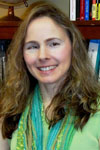 Cheryl O'Brien
Cheryl O'Brien
Associate Professor of Political Science
Ph.D. (Political Science, Purdue University, 2013)
Professor O'Brien employs gender-based policy analysis and feminist political theory
to study policy changes, social movements, international norms, and transnational
networks across countries. She has fieldwork experience in Latin America and Africa,
primarily researching gender-based violence and "gender and food security." She has
also served LGBTQ+ persons through her volunteer and work experiences beyond academia.
 Vincent Pompei
Vincent Pompei
Assistant Professor of Educational Leadership
(Ph.D., Educational Leadership, San Diego State University)
Professor Pompei is an educational leader and social justice advocate with expertise
in using anti-bias and culturally responsive approaches to promote equitable outcomes
for all learners. His primary area of interest includes leveraging policies and practices
to transform school climates while meeting students' social, emotional, and mental
health needs. Pompei’s most recent research involves creating identity safe schools
and affirming learning environments for LGBTQ+ students. Before joining SDSU, Pompei
spent a decade as the National Director of the Youth Well-Being Programming at the
Human Rights Campaign (HRC).
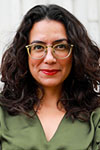 Erika M. Rodriguez
Erika M. Rodriguez
Associate Professor of Spanish
Ph.D (Comparative Literature, Washington University in St. Louis)
Professor Rodriguez (they/them) is an Assistant Professor of Spanish. Their research
explores the entangled ethical debates over reproduction, population control, and
the construction of disability at the turn of the twentieth century. Rodriguez’s current
book project scrutinizes the connective tissue between visions of progress in degeneration
theories and early eugenics, and examines how Spanish authors challenged the social
values that cast abject bodies as threats to the national future. You can find Rodriguez’s
publications on critical disability studies and Iberian culture studies in Disability Studies Quarterly, the Revista Canadiense de Estudios Hispánicos, and the Hispanic Research Journal.
 Nathian Shae Rodriguez
Nathian Shae Rodriguez
Associate Professor of Digital Media Studies
Ph.D. (Media & Communication, Texas Tech University 2016)
Professor Rodriguez is a core faculty member of the Area of Excellence "Digital Humanities
& Global Diversity" and specializes in critical-cultural and digital media studies.
His research focuses on minority representation in media, specifically LGBTQ+ and
Latinx portrayals and identity negotiation. Dr. Rodriguez also studies pop culture,
identity, radio broadcasting, and issues of masculinity & mascing. He has 10 years
professional radio experience, a BA in Communication from the University of Texas
of the Permian Basin, and a Masters of Journalism and Mass Communication with a Concentration
in Public Relations from Kent State University. Currently, Dr. Rodriguez is investigating
the role of communication (mediated and interpersonal), in the identity negotiation
of LGBTQ+I refugees, asyleess, and migrants in the U.S..
 Ronnee Schreiber
Ronnee Schreiber
Professor of Political Science
Ph.D. (Political Science, Rutgers University, 2000)
Professor Schreiber studies women in American political institutions and women’s activism
on public policy issues. Her book, Righting Feminism: Conservative Women and American Politics was published by Oxford University Press in 2008. In addition to her book, she has
published research on media coverage of women in Congress, how feminist organizations
adapt to conservative political climates and how conservative women challenge feminist
understandings of gender consciousness.
 Arun Sethuraman
Arun Sethuraman
Assistant Professor of Biology
Ph.D. (Iowa State University, 2013)
Dr. Arun Sethuraman, Ph.D. is an Assistant Professor of Bioinformatics and Population
Genetics in the Department of Biology at SDSU. His research focuses on the development
of statistical methods to study genetic ancestry, evolutionary history, and speciation,
as applied to conservation, agriculture, biological control, and the study of human
history.
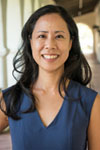 Lianne A. Urada
Lianne A. Urada
Associate Professor in School of Social Work
Ph.D. (Social Welfare, University of California, Los Angeles, 2011)
Professor Urada’s research focuses on HIV, community mobilization, and global health
intervention research with diverse populations, including harm reduction approaches
for those engaged in sex trade and substance use. She is an ally for LGBTQ+I populations,
persons living with HIV, and survivors of sex trafficking. She teaches graduate courses
on community practice and civic engagement.
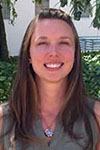 Allison A. Vaughn
Allison A. Vaughn
Professor of Psychology
Ph.D. (Psychology, University of Utah, 2008)
Professor Vaughn has a background in social and health psychology. Her research focus is on the intersection of social relationships, stigma, and health.
Lecturers
 Amanda Beardsley
Amanda Beardsley
Lecturer in Women’s Studies
Ph.D. (Art History, Binghamton University, 2019)
Dr. Beardsley’s research investigates the relationship between aural technologies,
gender, and faith. She has taught courses and written on the intersection between
science and religion, feminist media theory and history, sound studies, art history,
and gender studies. She has recently published articles in Technology and Culture and Nineteenth Century Studies that address the gendered implications of architectural acoustics and visual media
within American religion.
Robert R. DeKoven
Professor of Legal Writing, California Western School of Law
J.D. (California Western School of Law, 1983)
Professor DeKoven, a former Asssociated Student President at SDSU, is frequent lecturer
focusing on sexual orientation and the law. He has published over 600 articles on
sexuality and law; co-authored the City of San Diego ordinance prohibiting sexual
orientation discrimination; and co-founded the LGBTQ+ Bar Association. He welcomes
student and faculty legal research inquiries about lgtbqia+ issues.
 Charles Goehring
Charles Goehring
Lecturer in School of Communication
Ph.D. (Communication Studies, University of Iowa, 2008)
Professor Goehring teaches and researches in the areas of gender identity, feminist
criticism, visual rhetoric, and transgender rights advocacy. Among other work, he
has published research on gender diversity and inclusivity in K-12 education, a visual
rhetorical criticism of a domestic violence campaign, and a forthcoming book chapter
on transgender fetishism on contemporary television. He teaches courses on rhetorical
criticism, rhetorical theory, and gender and communication.
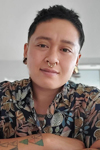 Mary Frances Samson Marchan
Mary Frances Samson Marchan
Lecturer in LGBTQ+ Studies
Ph.D. Candidate (American Studies, University of Minnesota)
Mary Marchan received her B.A. and M.A. in Women’s Studies at San Diego State University.
She is currently a Ph.D. candidate in American Studies at University of Minneapolis.
Her research examines the intersection of kinship and queer subjectivity in Filipino
families on Siquijor Island, Philippines, in order to develop a theory of queer relationality
that challenges both individualist notions of identity and abstracted notions of community
on which Western queer politics depends.
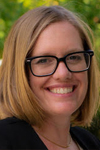 Maggie Slaska
Maggie Slaska
Lecturer in LGBTQ+ Studies, Women’s Studies, Counseling and School Psychology
Ph.D. (Psychology, Vrije University Brussels, Belgium)
Maggie is a queer-identified Marriage and Family Therapist in private practice in
Hillcrest. Her Ph.D. research used critical discursive psychology to examine cultural
discourses about trauma and resiliency with a focus on queer women’s experiences with
social justice activism after sexual assault and relationship violence. Her scholarly
and clinical interests include postmodern narrative and solution-focused therapies,
resilience and trauma-talk, queer feminist intersectionality, social constructionism,
improv comedy and expressive arts therapy.
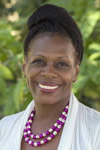 Tanis Starck
Tanis Starck
Lecturer in Africana Studies
Ph.D. (Educational Psychology, Howard University, 1986)
A native of Oakland, California, Dr. Tanis King Starck is a nationally recognized
author, lecturer and speaker on Cultural Transformation. Dr. Starck specializes in
multicultural student development and the effects of institutional racism on educational
outcomes of marginalized student populations. Dr. Starck is the Director of the Professional
Development Cultural Competency Certificate program at SDSU Global University.
 Carlos Ulloa
Carlos Ulloa
Lecturer in Dual Language and English Learner Education
Ed.D. (Educational Leadership, University of California, Los Angeles, 2013)
Professor Ulloa has spent his career working in K-12 schools as a teacher, director of curriculum and instruction, instructional coach, elementary and middle school principal. His research interests include how Latinx culture, portrayal in film, television, and literature intersect to influence identity, resilience, and unconscious bias.